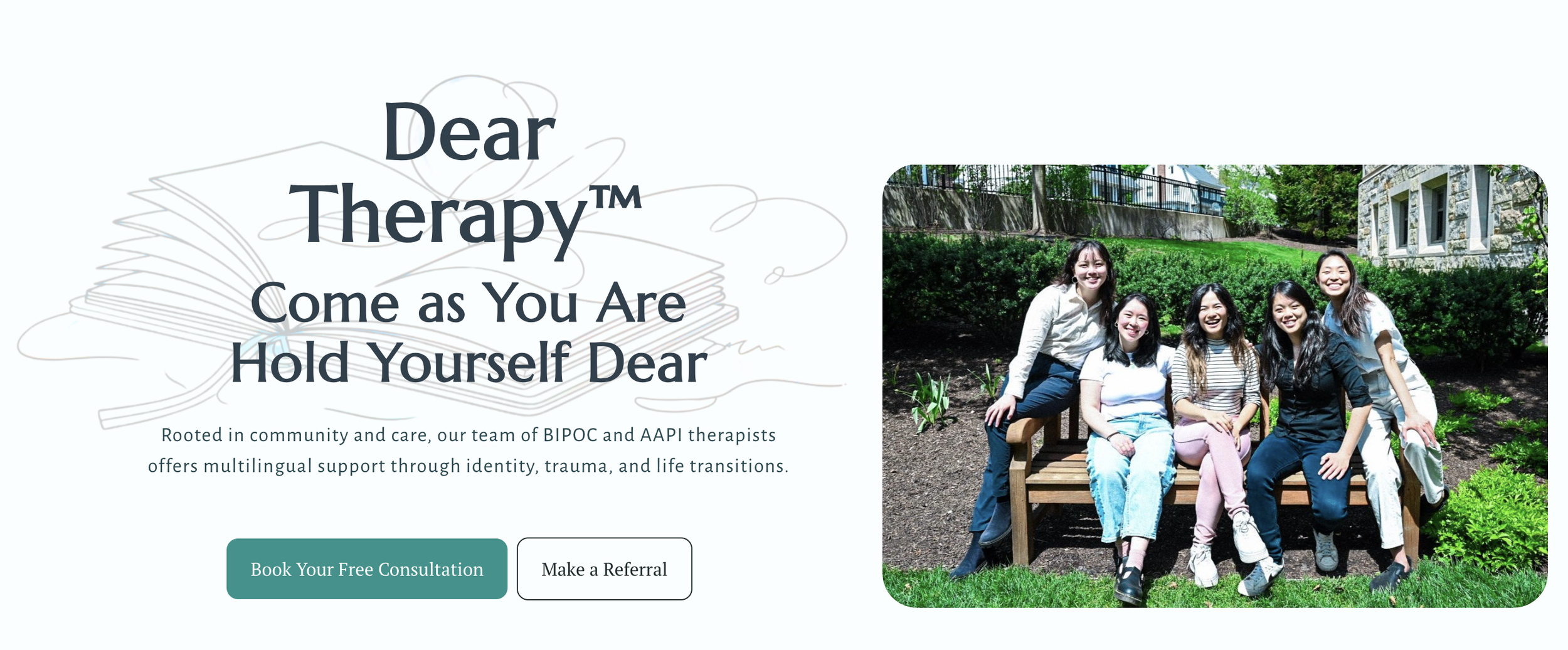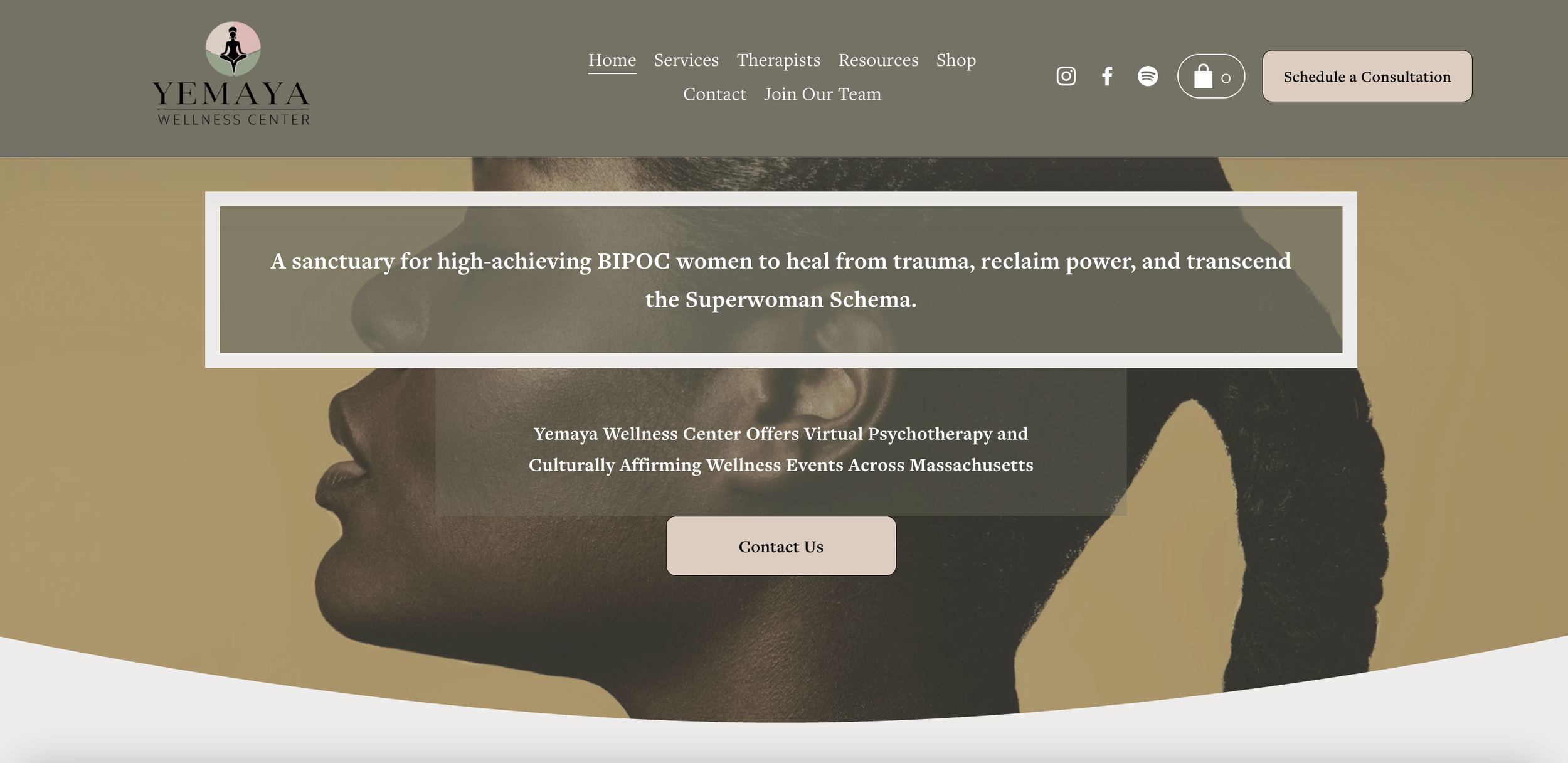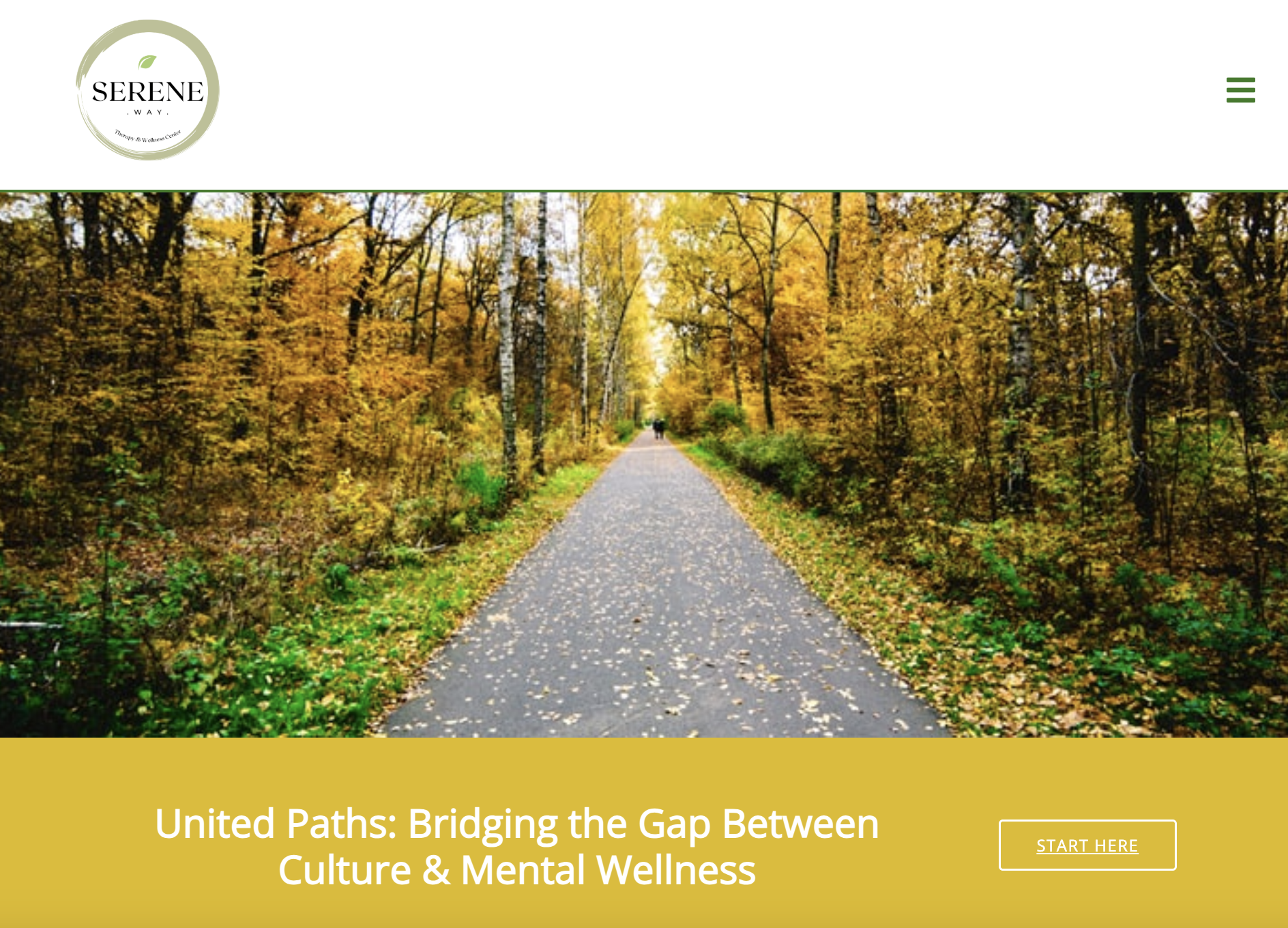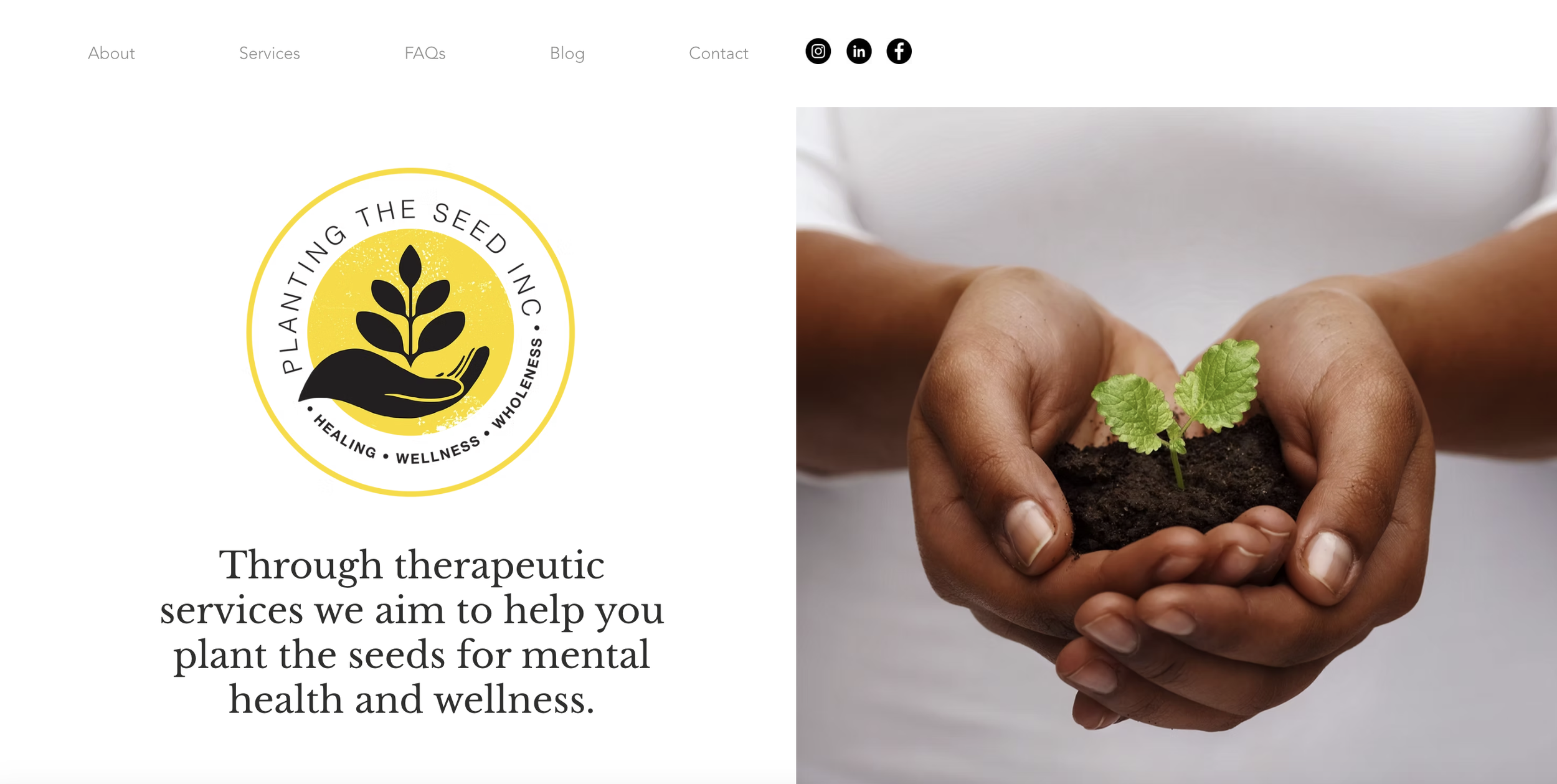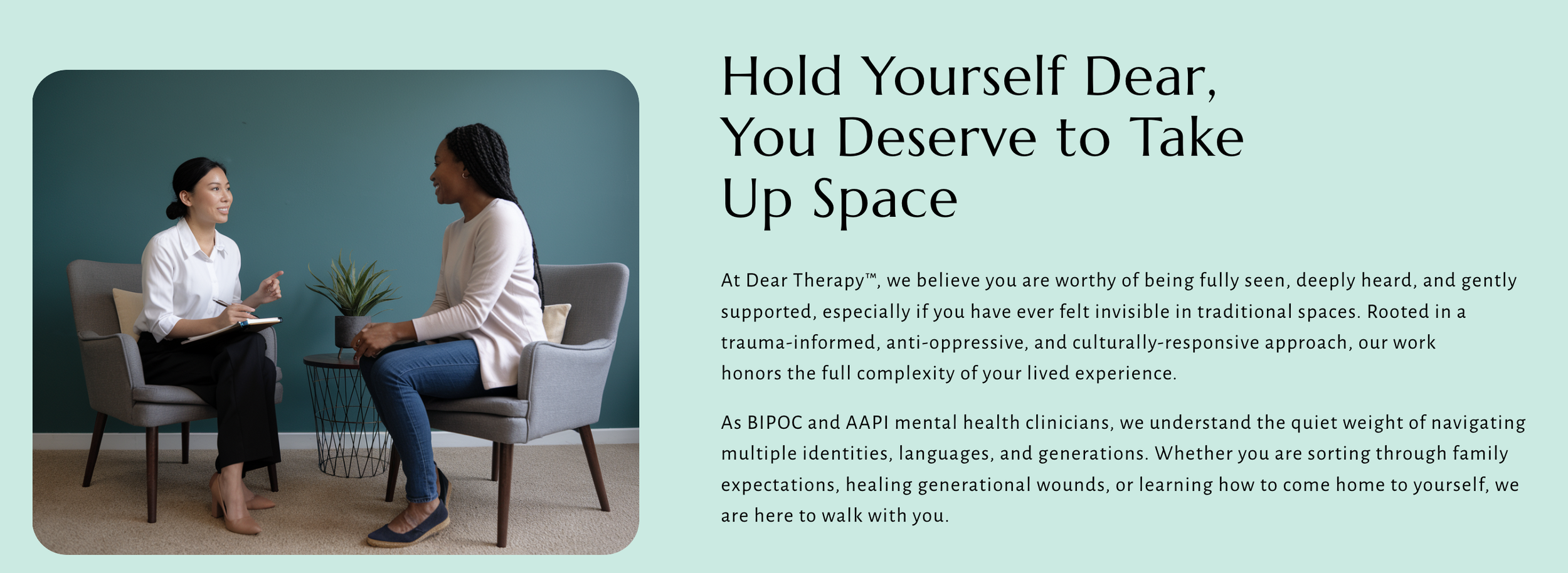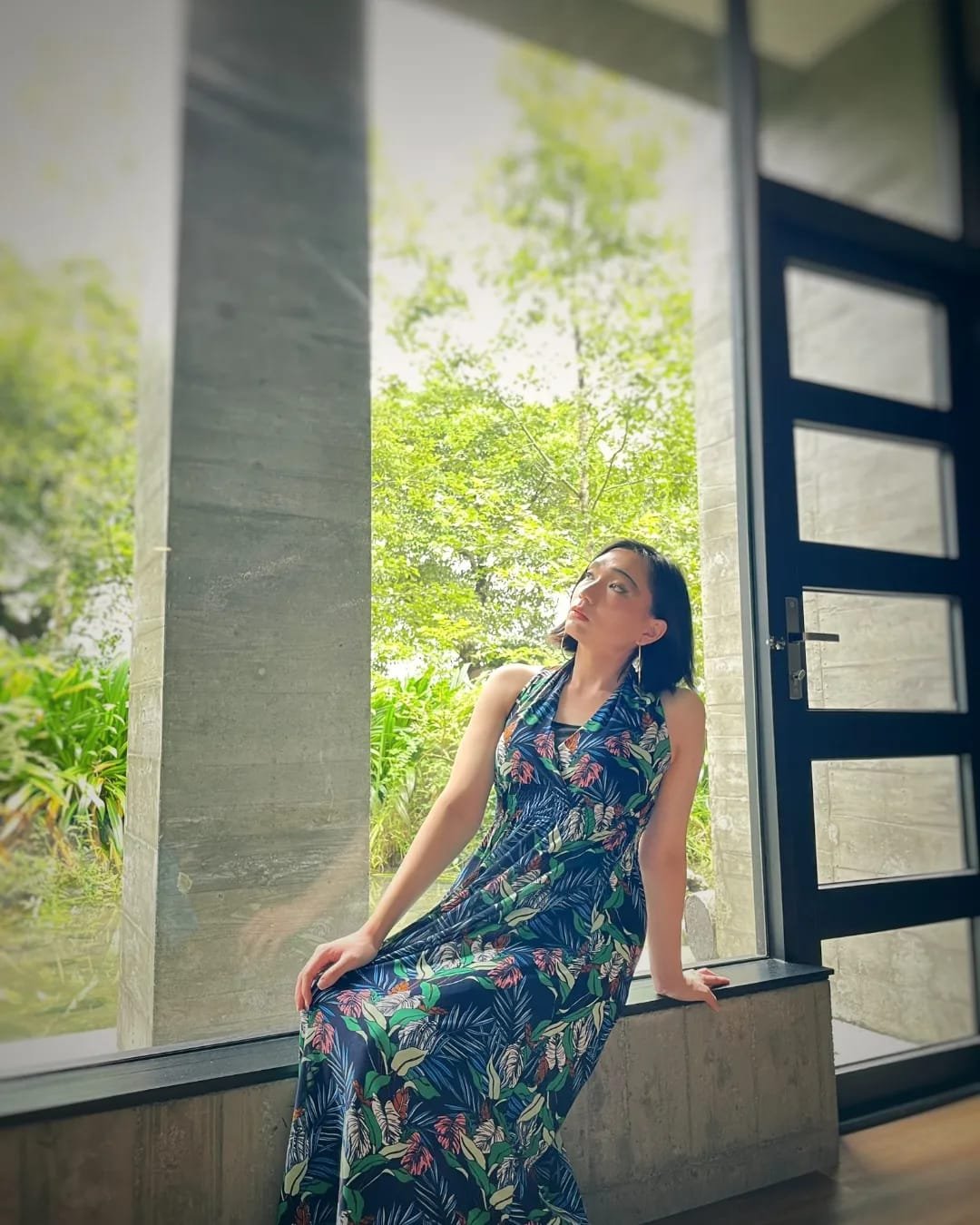Top 7 BIPOC and AAPI Mental Health Clinics serving Massachusetts
Finding a therapist who understands your culture can make all the difference.
For Massachusetts residents seeking BIPOC-focused, culturally responsive therapy, whether you're searching for "BIPOC therapy Boston," "Asian American therapists MA," or "AAPI therapists near me", this list highlights inclusive, trauma-informed practices.
These clinics offer in-person and virtual care, with licensed BIPOC and AAPI clinicians who serve adults, youth, couples, and families.
From practices that specialize in Mandarin and Cantonese sessions to spaces created specifically for Black women or queer Asian clients, these are ten of the most trusted, identity-affirming therapy providers in Massachusetts.
Summary Table of BIPOC & AAPI Therapy Clinics in MA
| Clinic Name | Location | Format | Languages Offered | Focus Areas |
|---|---|---|---|---|
| Dear Therapy® | Statewide (Virtual) | Virtual | Mandarin, Cantonese, Vietnamese, English | AAPI, BIPOC, youth, immigrants, racial and intergenerational trauma, queer and neurodivergent clients, family dynamics, identity, and trauma-focused care. |
| Yemaya Wellness Center | Cambridge (Virtual) | Virtual | English | BIPOC women, trauma recovery, racial trauma, imposter syndrome, and legacy-based care. |
| Serene Way Therapy | Randolph & Virtual | In-person & Virtual | Haitian Creole, Portuguese, English | Immigrant mental health, family healing |
| Trauma to Hope Counseling | Medway & Virtual | In-person & Virtual | English | Grief, CBT, attachment therapy |
| Planting the Seed Healing | Springfield & Virtual | Virtual | English | Substance use recovery, anxiety, depression |
| Phoenix Rising Centers | Statewide (Virtual) | Virtual | English | Racial trauma, burnout, systemic oppression. Offers inclusive support for transgender and gender-expansive clients |
| Resilience Lab | Statewide (Virtual) | Virtual | English + multilingual options | Identity-affirming, matching-based therapy |
1. Dear Therapy® (Virtual – Serving All of Massachusetts)
Dear Therapy® is a virtual therapy practice led by a diverse team of Asian American and BIPOC clinicians. The practice offers trauma-informed, culturally responsive care to clients across the state. Clinicians at Dear Therapy® understand the experience of navigating multiple identities, languages, and generations.
The practice was founded by Yanyi Weng, MSW, LICSW, a multilingual therapist and educator with roots in Boston Chinatown. Yanyi brings years of experience supporting Asian American and Pacific Islander communities. Her approach blends narrative therapy, somatic healing, and anti-oppressive frameworks.
As a former youth advocate and two-time Boston College graduate, she leads Dear Therapy® with clarity, care, and a strong commitment to healing justice.
The team offers therapy in Mandarin, Cantonese, Vietnamese, and English. Services include individual, couples, and family therapy for anxiety, depression, trauma, identity stress, and life transitions.
Clients can book a free 15-minute consultation to be matched with a therapist who truly understands their cultural background and lived experiences.
2. Yemaya Wellness Center (Cambridge, MA – Virtual)
Yemaya Wellness Center is a boutique telehealth practice created for high-functioning Black women. Founded by Jasmine Dowery, LMHC, the practice is designed to support clients through trauma, burnout, imposter syndrome, and relationship stress.
Jasmine integrates Black cultural wisdom and body-based healing into her sessions. Therapy here is rooted in empowerment and legacy. Yemaya offers virtual therapy across Massachusetts and accepts major insurance plans. There is often a waitlist for new clients.
3. Serene Way Therapy & Wellness (Randolph, MA & Virtual)
Serene Way is a wellness center in Randolph offering in-person and virtual therapy. Their approach is holistic and grounded in cultural humility, mindfulness, and collective healing. The team includes clinicians who speak Haitian Creole and Portuguese and who specialize in systemic and generational trauma.
They offer therapy for adults, couples, and families, with services that integrate yoga, body work, and mental health counseling. Serene Way is especially known for their support of immigrant and Caribbean communities.
4. Trauma to Hope Counseling Services (Medway, MA & Virtual)
Trauma to Hope is a practice founded by Lubenji Laforest, a Black clinician offering trauma-informed therapy to individuals, families, and couples. Clients can meet in-person in Medway or join virtual sessions from anywhere in Massachusetts.
Lubenji’s approach centers emotional safety and healing through CBT, attachment therapy, and mindfulness. She works with a wide range of issues including grief, life transitions, and family stress, and welcomes clients of all ages and backgrounds.
5. Planting the Seed Healing Center (Springfield, MA & Virtual)
This Black-owned group practice offers teletherapy across Massachusetts and Connecticut. The team at Planting the Seed serves adults and couples, with a focus on substance abuse recovery, anxiety, depression, and holistic healing.
They are known for creating an affirming space for BIPOC clients and for integrating culturally informed practices with traditional psychotherapy. Therapy is offered in English and tailored to each client’s cultural background and healing goals.
6. Phoenix Rising Centers (Virtual – Massachusetts)
Phoenix Rising Centers is a collective of BIPOC clinicians offering virtual therapy across Massachusetts. They specialize in healing racial trauma, supporting creatives, and addressing identity-related stress.
The practice welcomes individuals and couples, particularly artists, organizers, and those working through systemic oppression or burnout. Therapists here are deeply grounded in anti-oppressive, community-centered care.
7. Resilience Lab (Virtual – Serving Massachusetts)
Resilience Lab is a large therapy network that matches clients with licensed, diverse therapists in Massachusetts. While not exclusively BIPOC-led, they prioritize inclusion and offer a broad selection of culturally competent clinicians.
Their matching system allows clients to search for providers based on identity, language, or specialty. Services include individual and couples therapy, all online, with first appointments available within days.
Ready to Start Therapy?
Each of these therapy practices offers affirming, culturally aware care tailored to the needs of BIPOC and AAPI communities in Massachusetts. If you are looking for a space where you feel seen, heard, and respected, you’re not alone and you don’t have to do this by yourself.
Dear Therapy® offers free 15-minute consultations with licensed clinicians who speak Mandarin, Cantonese, Vietnamese, and English. You can meet virtually from anywhere in the state.
Book a free consultation with Dear Therapy®
Frequently Asked Questions (FAQs)
Q: How do I find an Asian American therapist in Massachusetts?
You can use directories like PsychologyToday.com by filtering for race, language, and cultural background. Another helpful resource is the Asian Mental Health Collective, which provides a national directory of Asian American therapists. You can also reach out to clinics like Dear Therapy®, which offers free consultations to help match you with an Asian American clinician who shares your language or cultural experience.
Q: Are there therapists in MA who speak Cantonese or Mandarin?
Yes. Dear Therapy® offers sessions in Mandarin Chinese and Cantonese, along with Vietnamese and English. Other practices may also have bilingual clinicians always check the clinic's site or ask during the intake process.
Q: What is culturally responsive therapy?
Culturally responsive therapy recognises how your identity, background, and experiences shape your mental health. It centres your lived experience, challenges harmful norms, and helps you build strategies for healing that make sense within your cultural context.
Looking for more AAPI community support in Massachusetts?
Explore our Comprehensive List of AAPI Community Organizations in MA. From cultural centers and legal advocates to health programs and youth support, these groups offer connection, healing, and resources for the AAPI community.
Written by Cahya Donaven (she/they)
MSW Candidate, Columbia University | Marketing & Mental Health Advocate
Cahya is a Malaysian transgender Muslim writer and community-based strategist focused on mental health, identity, and accessible care. With experience in both wellness education and digital storytelling, she is committed to spotlighting inclusive healing practices and dismantling stigma in marginalised communities.
She is also the co-founder of Karya Studio & More Than Stories Collective, where she merges advocacy with creative marketing.


